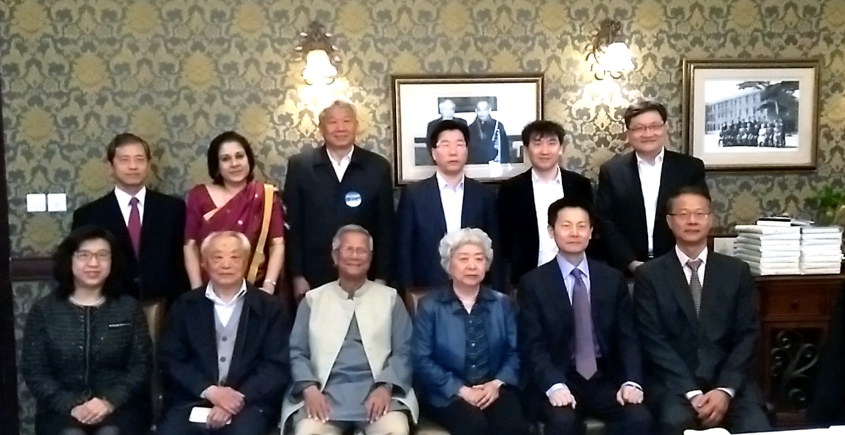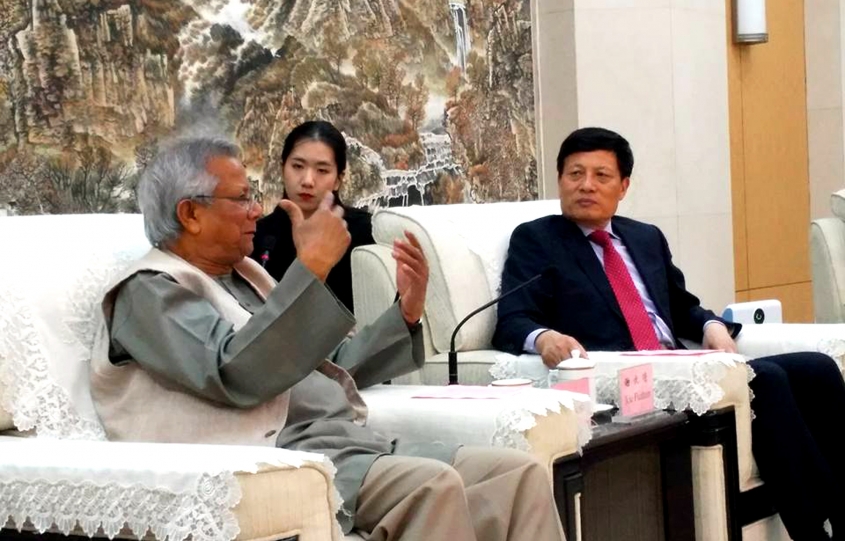In Bangladesh, soil fertility has always been an important issue. This holds true now more than ever, with farmers around the country using fertilisers or chemicals that are potentially harmful for the soil. To counter this, Grameen Intel Social Business Ltd (GISBL) introduced mrittikÄ, a soil test based fertiliser recommendation software three years back. In Khulna and Jessore they have been implementing the project with Solidaridad Network Asia. The project has been implemented so far in 40 locations in Bangladesh. GISBL has also been implementing this software in India and Cambodia to improve paddy production.
Right after its early stages, a pilot project was initiated to test mrittikÄ on a limited number of crops, including tomato, cauliflower and brinjal. MrittikÄ works by identifying the current status of major soil nutrients and then accordingly suggesting the optimum amount of fertiliser and the type of fertiliser that should be used by the farmer. It does not end there; the software also identifies the amount by which fertiliser use can be reduced, thereby helping to optimise the whole process and contributing to healthier soils.
To test the effectiveness of mrittikÄ, demo plots were used where fertilisers were used in three ways: as recommended by Grameen Intel’s mrittikÄ app; as per the recommendations of the Bangladesh Agriculture Research Institute (BARI) handbook; and in accordance to traditional practice. One decimal of land was allotted for each of the methods. The three methods were used to measure the various outcomes and see where mrittikÄ stands in terms of efficiency.
Once the crops were planted, it was time to monitor them; this was done by farmers, field organisers, technical officers and programme officers of the project. The outcome of the monitoring and evaluation exhibited the impact the mrittikÄ app can have: it showed higher yields than the BARI handbook and traditional methods, and showed that with mrittikÄ’s fertiliser recommendations, fertiliser costs were also much lower. For instance, in the case of brinjal crops, the fertiliser cost in accordance to mrittikÄ recommendations were 29% lower than the BARI handbook method and an astonishing 468% lower than the traditional method. These are very significant differences, which is a clear indication of how much the whole process can be optimised while saving huge costs (almost over 400%) over traditional farming practices.
With Bangladesh’s growing population and high food demands needing to be met, it is essential to maximise all our outputs as well as protect our environment in order to keep growing more and more crops. MrittikÄ is not only educating farmers on the ideal method of growing crops and the type and amount of fertiliser that ought to be used, it is helping us reduce a large amount of the costs to make farming processes more efficient and cheap at the same time.
The mrittikÄ app is a very easy-to-implement system and a great initiative for Bangladesh and her farmers, helping them obtain a higher yield per taka spent on fertiliser. If implemented right all over Bangladesh, it is not only great for soil health around the country, but it will also allow farmers to achieve better standards of living and help fight the food shortage in Bangladesh.
Read the full article here:https://goo.gl/lJg3pT




 SOCIAL BUSINESS
SOCIAL BUSINESS 

 Events
Events News
News






